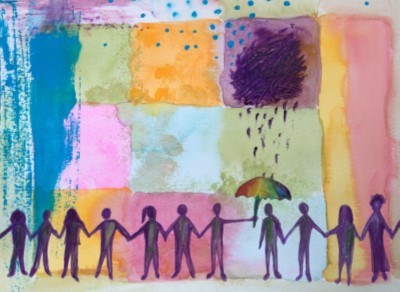In my final year of residency, I am struck with an urgency to cram as much learning as possible into the short time remaining.
I’m sure that senior residents across the country are doing the same. I have also taken a few steps into the role of teacher, offering what few pearls of wisdom I can to the new interns familiarizing themselves with the department. It is during these moments that I can truly appreciate the breadth of what I’ve learned in residency. The realization comes as a refreshing break, however short, from the anxiety and uncertainty that inevitably hits when I step back into the chaos.
There was a time when I was seeing all my patients in rooms. Now I see more patients in chairs in the waiting room than in beds, while all around me there are staffing shortages, excessive bed holds, wave after wave of Covid, and increasingly grumpy and occasionally violent patients and family members.
I’ve learned a lot in residency, even from “waiting room medicine” — it teaches prioritization and self-sufficiency, if nothing else. I have learned to care for all sorts of patients with all sorts of conditions.
But the new, seemingly endless shift in the landscape of emergency medicine and the health care system overall has highlighted that while I can care for, residency has failed to teach me how to care about.
How do I care about the patient who comes in with the same neck pain she has had for the past 15 years, who only came in tonight because she “had some time,” when I just left a family in a back room with a chaplain, coming to terms with the loss of their loved one?
How do I care about the unvaccinated patient who has a fever but refuses a Covid test when I know that upstairs there are still other Covid-positive patients dying on ventilators?
How do I care about the consultant who berates me for calling them to see a patient still in the waiting room, when people are dying waiting for a room upstairs?
How do I care about the next patient I need to see, when I feel like I have used up all my “caring” on the man whose wife died the day before their 60th wedding anniversary, the woman whose son died of a drug overdose, the woman who withdrew care for her father after four hours of resuscitation?
How do I care about doing my best, when even at my best I am told by the patient’s family that my hospital should be shut down, that we should be reported, that I should be ashamed of how long it takes to be seen, to get a room, for labs to result, for papers to discharge?
How do I care about my future, when I hear that it will be difficult to find a job in just a few years, when my attendings cry in the hallways, when I hear all the reasons that wellness is pivotal and burnout is a critical finding, but see no evidence of wellness in my studies?
How do I care about my husband, who has supported me through my entire career so far, when I’ve heard people talking all day and just want to sit in silence?
How do I care about myself? When do I schedule a doctor/dentist/therapy appointment? Do I pick up my medication from the pharmacy and be late to my shift, or do I withdraw from my SSRI on my string of nights? Do I sleep for an extra hour, or go to the gym? Socialize with friends, or clean my house?
How do I even care about caring? And how do I know when to stop? How do I reset to be able to care tomorrow when I go home and still think of all the people I cared about today?
I will graduate soon, and I am fully confident that I will graduate as a competent physician, able to manage a breadth of clinical presentations. I will know what to do, or I will know how to figure it out. Rather, I fear that the biggest failure of my training will be what I should do after the patients leave my care: when I go to the next room, to the next shift.
This is not a criticism of where I’ve trained; I love my residency and my co-residents, and I have endless respect and admiration for my mentors and our faculty. But I worry that there is no evidence-based answer for my dilemma, and that this is a deficit in residency training overall. As I read and hear about other physicians in our specialty working through the same emotional burnout, I think that there must be something more we as a specialty can do for the next group of new physicians. Built-in “wellness time” and recommending meditation are small steps, but we can only meditate on the state of the system for so long before the weight of carrying the safety net drags us down. Dealing with the emotional and mental repercussions of our work should be integrated as part of our training earlier in residency, to give us the skills to answer these questions both during our training and long after we have left.
I don’t have the answer. I have no panacea for this pandemic of burnout. I worry that even my admirable mentors don’t have the answers or know the appropriate remedy. I am still trying to pluck out some pearls of wisdom from all of this to pass along to a new intern or medical student. But I hope that by the time someone looks up to me for guidance, I will have found it.



